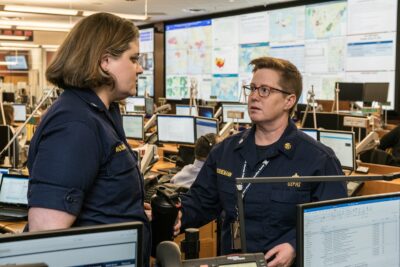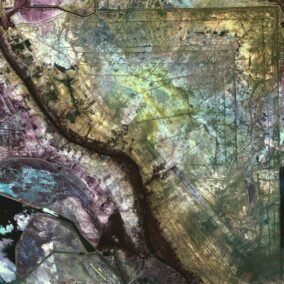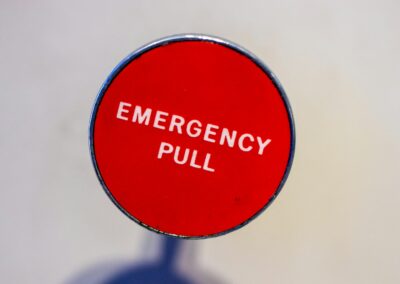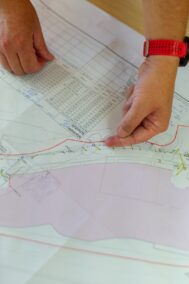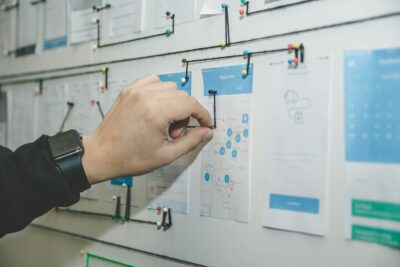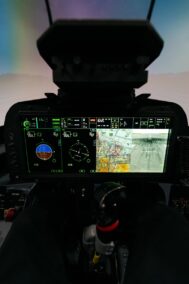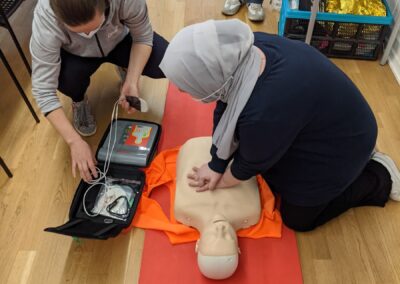Revolutionizing Disaster Management with GIS Integration
Leveraging GIS for Effective Disaster Visualization and Analysis
GIS-integrated emergency communication systems are transforming the way disaster management is approached, particularly in urban areas such as Saudi Arabia and the UAE. Geographic Information Systems (GIS) provide a powerful tool for visualizing and analyzing the impact of disasters, thereby supporting more efficient resource allocation and response strategies. By integrating GIS with modern emergency communication systems, cities can enhance their ability to manage and mitigate the effects of natural and man-made disasters.
In Riyadh, the adoption of GIS-integrated systems has proven instrumental in improving disaster response. These systems enable city officials to visualize the extent of disaster impact in real-time, allowing for quicker and more informed decision-making. For example, during a flood, GIS can map the affected areas and identify critical infrastructure at risk, enabling emergency responders to prioritize their efforts and resources effectively. This capability not only saves lives but also reduces the economic impact of disasters.
Dubai, a leader in smart city initiatives, is also leveraging GIS to enhance its disaster management capabilities. The city’s emergency communication systems incorporate GIS to provide a comprehensive view of disaster scenarios. This integration allows for real-time data analysis and visualization, helping authorities to coordinate response efforts more efficiently. By utilizing GIS, Dubai can ensure that its disaster management strategies are both proactive and reactive, ultimately enhancing the resilience of the city against various threats.
Integrating Modern Technology for Enhanced Disaster Management
The integration of GIS with emergency communication systems is just one aspect of a broader strategy to utilize modern technology for disaster management. In Saudi Arabia and the UAE, there is a growing focus on incorporating technologies such as artificial intelligence (AI), blockchain, and the metaverse to further enhance disaster response and resilience. These technologies offer new ways to predict, manage, and recover from disasters, making them invaluable tools for urban planners and emergency responders.
In Riyadh, AI-driven systems are being integrated with GIS to improve the accuracy of disaster predictions and response strategies. AI algorithms can analyze historical data and current conditions to forecast potential disaster scenarios, while GIS provides the spatial context needed to visualize these predictions. This combination enables more precise and timely responses, helping to mitigate the impact of disasters on the city’s infrastructure and population. By leveraging AI and GIS, Riyadh is setting a new standard for disaster management in the region.
Dubai is also exploring the use of blockchain technology to enhance the transparency and efficiency of its emergency communication systems. Blockchain can create a secure and immutable record of all disaster-related data, ensuring that information is accurate and accessible to all stakeholders. When combined with GIS, this technology can provide a comprehensive and reliable platform for disaster management. By adopting blockchain, Dubai is enhancing its ability to coordinate disaster response efforts and ensure that resources are allocated where they are needed most.
Strategic Implementation of GIS-Integrated Emergency Systems
Enhancing Business Resilience through Advanced Technology
Investing in GIS-integrated emergency communication systems is not only crucial for public safety but also a strategic business decision. In Saudi Arabia and the UAE, businesses are recognizing the importance of resilient infrastructure in ensuring their long-term success. These advanced systems help protect commercial properties, minimize operational disruptions, and reduce financial losses caused by disasters. By adopting GIS-integrated systems, businesses can maintain continuity and safeguard their investments, demonstrating the value of modern technology in disaster management.
Leadership and management skills are essential in driving the adoption of these advanced technologies. Business executives must understand the risks associated with disasters and prioritize investments in resilient infrastructure. In Riyadh and Dubai, leadership development programs focus on equipping executives with the knowledge and skills to implement cutting-edge technologies like AI, blockchain, and GIS in their operations. By fostering a culture of innovation and resilience, these programs ensure that businesses are prepared to tackle the challenges posed by disasters.
Project management is another critical aspect of implementing GIS-integrated emergency communication systems. Effective project management ensures that these systems are completed on time, within budget, and to the highest standards of safety and quality. In the UAE, project managers leverage AI and blockchain technology to streamline the implementation process, reduce costs, and ensure compliance with safety regulations. By adopting a data-driven approach to project management, businesses can enhance the resilience of their infrastructure and achieve long-term success.
Leadership and Innovation in Disaster Management
Leadership plays a vital role in the successful deployment of GIS-integrated emergency communication systems. In Saudi Arabia and the UAE, government leaders and private sector executives are championing the integration of these advanced systems into urban planning and development. Their commitment to innovation and resilience drives the adoption of cutting-edge technologies, ensuring that cities are better prepared for the challenges posed by disasters.
In Riyadh, leadership initiatives focus on promoting the use of AI and blockchain in disaster management. By fostering partnerships between government agencies, technology providers, and academic institutions, the city creates a collaborative ecosystem that supports the development and implementation of advanced emergency communication systems. This approach ensures that Riyadh remains at the forefront of urban resilience, setting an example for other cities in the region.
Dubai’s leadership in smart city development is also instrumental in advancing GIS-integrated emergency communication systems. The city’s strategic vision includes the use of generative AI and the metaverse to enhance urban planning and infrastructure resilience. By integrating these technologies, Dubai is building a future-ready city that can withstand the impacts of disasters. The leadership’s commitment to innovation and sustainability is driving the city’s progress, ensuring that it remains a global leader in smart urban development.
Conclusion: Building a Resilient Future with GIS-Integrated Systems
The integration of GIS with emergency communication systems is a critical step towards building resilient cities. By leveraging advanced technologies like AI, blockchain, and GIS, cities in Saudi Arabia and the UAE can enhance their ability to predict, respond to, and recover from disasters. These systems not only protect lives and infrastructure but also contribute to sustainable urban development. By prioritizing resilience and innovation, cities like Riyadh and Dubai set a benchmark for others to follow, ensuring a safer and more sustainable future.
Investing in GIS-integrated emergency communication systems is a strategic decision that benefits both public safety and business success. Leadership and management skills are essential in driving the adoption of these systems, ensuring that they are implemented effectively and efficiently. By fostering a culture of innovation and resilience, cities can build a future that is prepared for the challenges posed by disasters. The integration of advanced GIS systems into urban planning and development is crucial for creating resilient and sustainable cities, capable of withstanding the impacts of disasters and ensuring the well-being of their inhabitants.
—
#GISIntegratedEmergencyCommunicationSystems #SaudiArabia #UAE #Riyadh #Dubai #AI #Blockchain #Metaverse #GenerativeAI #Technology #BusinessSuccess #Leadership #ManagementSkills #ProjectManagement #Resilience



